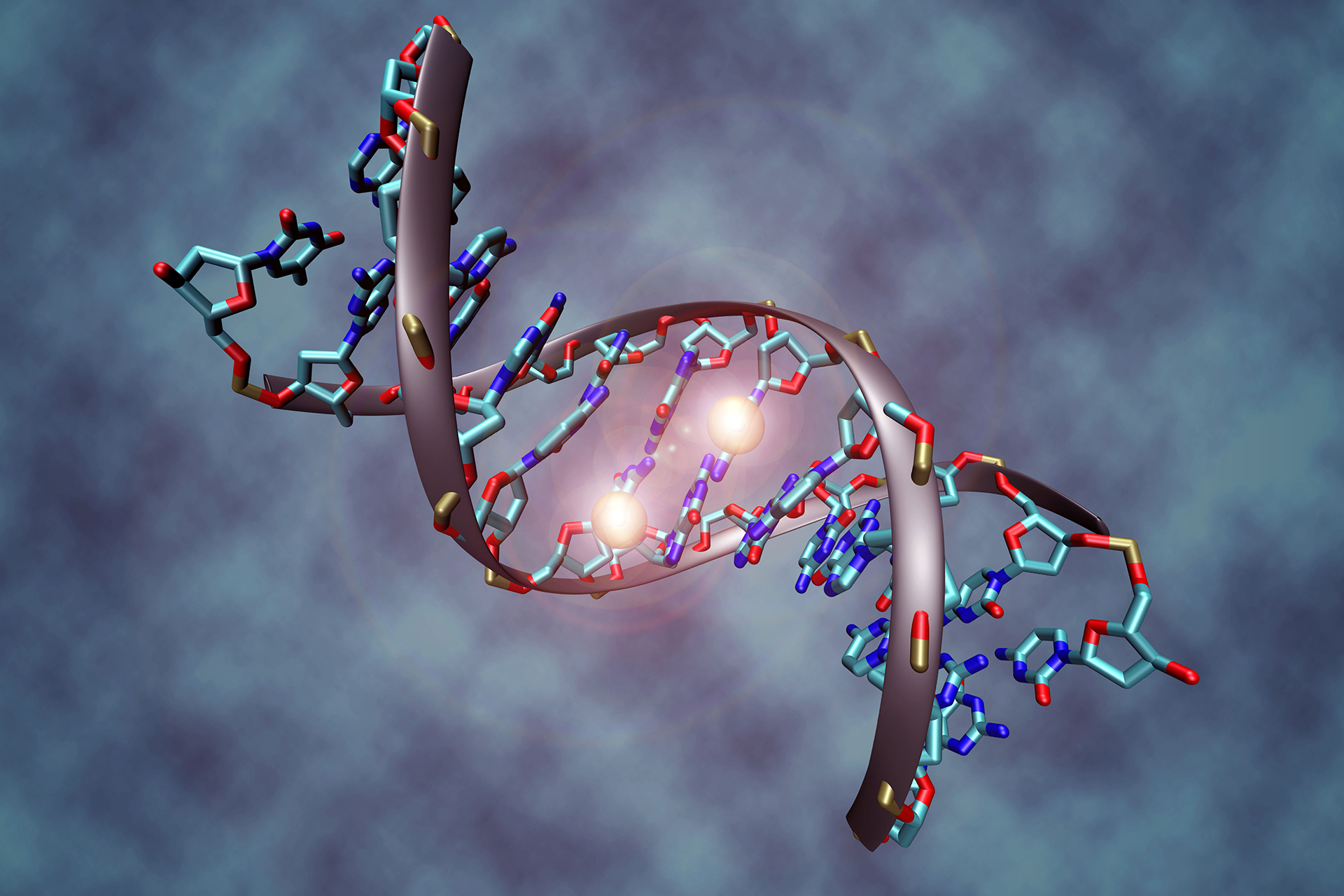Can you condense years of work into five to 15-minute coherent interviews? Yes, if you're Dr Kat Arney and her stalwart band of interviewees. Can one maintain focus past the second interview? Perhaps not, if you're me.
In her first podcast of 2023, Genetics Unzipped podcast host, Dr Arney caught up with three researchers at the Genetics Society Autumn Meeting focusing on the genetics of reproduction. Topics discussed in this podcast ranged from the role of prolactin in reproduction, the genetics of type two diabetes associated with low birth weight, and the epigenetics of placental development. If like me, you thought, 'All that in 25 minutes?' you'd be right to wonder.
For me, the highlight of this episode was the interview with Professor Dave Grattan of the University of Otago, discussing his work on prolactin, a hormone that leads to the production of breast milk. Dredging up my dusty medical school knowledge, I knew that prolactin levels rise during pregnancy and remain elevated while breastfeeding, preventing ovulation and causing infertility. It was, in my mind, a hormone much linked to lactating female mammals.
I was surprised and intrigued to learn that other vertebrates also produce prolactin, whether or not they lactate (except for jawless fish – and yes, I immediately looked up images, and recommend you do too). It turns out that prolactin is involved in many other types of reproductive behaviour, including exercise behaviour during pregnancy (which leads to increased maternal weight), temperature control (also during pregnancy), as well as male mouse display of parental behaviour.
Professor Grattan describes the evolution of his research well, taking us through his thought processes along the way. I particularly enjoyed his candid admission that some of his team's findings were incidental, as is much in science, although rarely acknowledged. However, the research's link to genetics remains unclear to me, despite a second listen.
The episode then jumps to Dr Rachel Freathy from the University of Exeter Medical School who studied genetic variation to explain the association between low birth weight and type two diabetes. They hypothesised a relationship as fetal insulin is a growth factor in the womb, while insulin later in life is involved in controlling blood sugar levels.
Using a combination of genome wide association studies and smaller trio studies (where a person's genome is tested alongside their genetic parents), Dr Freathy's team showed that some genetic variants associated with type two diabetes were seen in those with low birth weight. These variants were those that affected insulin production, rather than those associated with obesity or liver dysfunction – both of which can also lead to diabetes in later life.
But what does this all mean? Well, Dr Freathy wants to look at other maternal factors influencing growth in the womb and eventually create a genetic risk score predicting birth weight. Importantly, she cautioned against extrapolation to predict long-term health outcomes, as these variants only contribute a small amount to the development of type two diabetes. This makes sense to me, as most patients with type 2 diabetes have higher insulin levels than normal, so these variants are unlikely to represent a large part of what causes the disease.
I enjoyed the discussion on the complexity of research on fetal outcomes, which are affected both by the fetus' genes as well as maternal factors (some of which are also genetically determined). This is not something most other medical researchers have to contend with, adding an extra dimension to this work. I will confess to an initial sense of relief that I don't have to deal with this in my own work, although it did make me wonder – if fetal outcomes do translate into long-term health outcomes, could maternal factors play a role in adult-onset neurodegenerative disease?
But before I could follow that thought through, we are whisked away for one last interview with Dr Courtney Hanna, from the University of Cambridge, who studies the epigenetics of placental development. Her team re-examined a mouse model where an enzyme essential for DNA methylation had been knocked out. This knockout was thought to directly affect embryonic development, but Dr Hanna's team has shown that it impairs placental development, potentially to the point of embryonic lethality which could cause the embryonic change.
Despite my own research interests in DNA methylation, I found it challenging to concentrate during this interview. In part, my own limited attention span likely contributed. However, it didn't help that the previous two stimulating topics had captured my attention and were refusing to relinquish sufficient custody for me to follow Dr Hanna's interview through. Going back to the transcripts, somewhat defeating the purpose of a podcast, I also felt that the truncated nature of the five-minute interview also meant that some of the complexity and richness of the subject matter was lost.
As a newcomer to the Genetics Unzipped podcast, I enjoyed Dr Kat Arney's unbridled enthusiasm for the subject and appreciated her well-placed questions, which go a long way in helping her audience contextualise and understand the science. I welcome the desire to showcase the breadth of topics discussed at the meeting but would personally have preferred if the interviews had been spread over a couple of episodes. Overall, this remains recommended listening, but I certainly wouldn't do it while multi-tasking.




Leave a Reply
You must be logged in to post a comment.